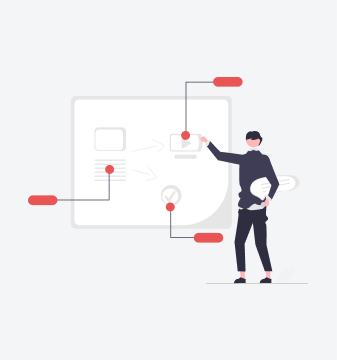Have you ever dreamed of creating the next viral app or popular website? Learning to code is an exciting first step towards making that dream a reality. In today’s tech-driven world, Java skills are highly valued by employers. Attending beginner Java courses in Singapore can equip you with fundamental programming knowledge to start an inspiring journey as a developer. Whether you aspire to build simple scripts or complex systems, quality coding education lays the groundwork for an abundant future in technology.
What is Java Programming Language?
Java is a popular general-purpose programming language first released by Sun Microsystems in 1995. It is an object-oriented language designed to be platform-independent, meaning Java code can run on any device regardless of the underlying operating system. Java’s versatility also makes it useful for data science applications, with its rich set of libraries and tools aiding in data analysis, machine learning, and big data processing.
Importance of Java in Modern Programming
In today’s digital world, Java continues to be one of the most widely used programming languages. Here are some reasons why Java is so important:
- Huge community support: Java has a large, active community of developers who constantly improve the language and contribute open-source libraries and frameworks. This makes development in Java easier.
- Cross-platform compatibility: With Java’s “write once, run anywhere” principle, the same Java code can run on different platforms like Windows, Mac, Linux etc.
- High performance and scalability: Java is fast, efficient and reliable for large enterprise systems and mission-critical applications that require high throughput and performance.
- Strong corporate backing: Java is created and supported by Oracle, one of the largest software companies in the world. The commercial support gives businesses confidence in using Java.
- Wide range of uses: Java is a general-purpose language that can be used for client-side desktop apps, server-side web apps, mobile apps, embedded systems, smart TVs, IoT devices and more.
- Simpler than C/C++: Java’s syntax is simpler than that of languages like C/C++, which lowers the barrier to starting programming in Java.
- Extensive libraries and tools: Java has a vast ecosystem of open-source libraries, frameworks and developer tools like Eclipse, NetBeans, etc. This boosts programmer productivity.

Course Levels
1. Beginner:
The beginner-level Java programming course Singapore suits those with little or no programming experience. It teaches fundamental programming concepts like:
- Core Java syntax – data types, variables, operators, decision-making, loops
- OOP basics – classes, objects, inheritance, abstraction, encapsulation
- Working with arrays, strings
- Handling exceptions
- Basic input/output operations
2. Intermediate:
The java intermediate course builds upon beginner-level knowledge with more advanced features like:
- Working with packages and interfaces
- Using inheritance, abstract classes and polymorphism
- Exception handling
- Multi-threading for parallel execution
- Generics for type-safe collections
- User interface programming like Swing and JavaFX
- Database access using JDBC
- Debugging techniques
3. Advanced:
The advanced Java course focuses on enterprise application development concepts like:
- Enterprise design patterns
- Building web applications using Java EE technologies
- Web services and API development using REST architecture
- Handling multi-tier application data access
- Concurrency programming using advanced multi-threading
- Performance optimisation and tuning
Factors to Consider When Choosing a Java Course
Deciding on a Java course that meets your needs takes some consideration. As you evaluate options, keep the following key factors in mind:
1. Accreditation and Certification
When searching for Java programming online course with certificate, look for courses offered by accredited institutions that lead to certification from recognised entities like Oracle or professional organisations. This helps validate the quality and credibility of the program.
2. Curriculum Quality and Coverage
Examine the syllabus and curriculum to ensure robust coverage of Java fundamentals, data structures, OOP concepts and current/emerging technologies. A strong curriculum aligned with industry needs is key.
3. Mode of Learning
Choose an in-person, online or blended course based on your learning style and schedule. Evaluate whether self-paced or cohort models suit you better as well.
4. Duration and Intensity
The length and pace should align with your availability and ability to absorb new information. Beginners usually benefit more from extended intensive courses compared to short crash courses.
5. Cost and Financial Aid
Consider whether available financial assistance programs can help offset the costs through scholarships, subsidies or student loans with reasonable repayment plans.
6. Reputation of the Institution
Look at student satisfaction, instructor quality, career outcomes, partnerships with industry, etc, to determine if the institute has a strong track record in Java training.
Conclusion
With its widespread usage and strong community support, Java skills open doors to exciting technology careers. Evaluating factors like curriculum, credentials, learning formats and budgets helps you choose the ideal Java course for your goals. The right education provides fundamental building blocks to pursue software development opportunities confidently.
FAQs
1. Is Java a suitable language for coding beginners?
Yes, Java is one of the most popular and widely-used programming languages and a great choice for beginners because of its simplified syntax compared to languages like C++. Java is also object-oriented and has extensive learning resources available.
2. What can I build after learning Java?
Java is a general-purpose language that can be used to build a wide range of applications – desktop, web, mobile, games, enterprise systems, and more. Beginners can start by building simple command line programs and GUIs.
3. How long does it take to learn Java?
It depends on your prior programming experience, but generally, you can learn the basics of Java in a few weeks or months. Expect to spend 6-12 months to become proficient enough for a junior developer role. Learning core Java is an ongoing process.
4. What are the prerequisites for learning Java?
No prior programming knowledge is required. Beginners should have basic computer skills and knowledge of mathematics. Some logic/analytical thinking abilities will help with programming concepts.
5. Does Java have good job prospects?
Yes, Java consistently ranks as one of the most in-demand tech skills. Knowledge of Java can open up many opportunities, from software development to testing, DevOps and related IT roles. Java skills are valued at many technology companies.




